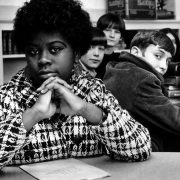The Story of a Queer Pakistani Muslim Activist, Psychologist and Poet. Meet Sanah Ahsan [@psychology_and_poetry]
![The Story of a Queer Pakistani Muslim Activist, Psychologist and Poet. Meet Sanah Ahsan [@psychology_and_poetry]](https://guap.co.uk/wp-content/uploads/2018/12/4e0b465b-8c05-49b0-aff3-d01688af23f4-180x180.jpg)
In the last week I had the opportunity to speak to Sanah Ahsan, a psychologist, poet and activist, as well as a queer Pakistani Muslim womxn. Sanah’s work is truly inspiring. From taking on the challenge of decolonising a predominantly white, middle class profession to voicing a Muslim rhetoric in the Shakespeare Globe theatre. She find empowerment and strength, through the intersections of her identity.
Could you please introduce yourself, and summarise what you are passionate about?

Could you introduce the community and mental health engagement projects you’re working with?
S: I work with an incredible grassroots organisation called Jawaab, which empowers young people to tackle Xenophobia and Islamophobia. Drawing on my experience as a psychologist and poet, I’m beginning work with Intermission Youth Theatre to help support predominantly young black creatives around their mental health. Previous projects include work with Human Appeal to shatter stereotypes around Muslim women through sport, collaborating with Childline around creative ways of coping for young people, and working with Stonewall as a BAME role model.
You’re also working on a project with The Other Box, what does this collaboration mean for the queer female Muslim community?
S: I’m really excited about an upcoming project with The Other Box, an award-winning organisation that celebrate diversity of colour in creative industries, run by Leyya Sattar and Roshni Goyate – two inimitable desi women. We are working to develop regular community spaces for queer Muslim womxn and non-binary people. This is particularly close to my heart, and a space I would have deeply valued having growing up. Harmful societal narratives convey the message that you cannot be both Muslim and Queer, or that one must be sacrificed for the other. Queer Muslims are so often taught to self-deprecate and shame themselves into non-existence. Therefore, learning to meet ourselves with love and acceptance, as well as offering this in relationships to other queer womxn of colour whom mirror the parts of ourselves we’re taught to hate, is a journey hampered with challenges.
Insha’Allah we will create a nurturing and healing space that will be co-authored by every single Queer Muslim Womxn who attends; co-curating and shaping what we all need from it. We hope to offer a safe, private, familial and community environment of non-judgement and acceptance, away from social media. Us merely existing in this space as we are, together in loving communion, is a radical and political act in itself that I cannot wait to be a part of.

S: As an 11 year old brown girl I was introduced to the other side of the mental health system; I found myself in NHS services that did not represent me. Further meetings as an adolescent often left me feeling misunderstood by white psychologists and psychiatrists, whom enforced a medicalised narrative that was so far from my worldview. The complexities of my race, faith, sexuality and culture, and how these things intersected with my mental health were entirely neglected. Those early experiences, combined with years and years of an unjustifiably competitive endeavour to access clinical psychology training (a process which hugely privileges white people), brought the problematic and harmful nature of whiteness in the profession to my attention.
When I finally reached training, I was faced with the hard-hitting realisation of how deeply entrenched institutional racism is in everyday NHS clinical practice, and started to understand how whiteness unfolds across the board, from ‘white knowledge’, academic representation and the therapeutic models we are taught. Having shifted into a position of privilege and power as a professional, it is an on-going challenge trying to find my place within a system that I am aware has so much potential to harm.
Decolonising a profession that is 80% white middle-class female, is an endeavour of multiple lifetimes. I wanted to use this research as a contribution, by holding up the mirror on the profession of clinical psychology. I am interviewing White, Middle-class females – encouraging them to reflect on their identity, their whiteness, and how this impacts the communities they work with. The people that use psychological services in London are predominantly from BAME communities, however their needs are widely reported as unmet. It is essential that people can see themselves visibly amongst the people they seek help from. I am trying to, and hope to continue to promote conversations regarding issues regarding race and culture through my work as a psychologist both in and out of clinical settings (e.g. speaking on panels and events across London about mental health in BAME communities).
How do you utilise poetry to fuel your activism?
S: I am continuously learning to harness the power of word. Spoken word is a form of story-telling that really captivates people’s attention for those four or twenty minutes, and that platform is an effective way of communicating important messages for our communities. I try to speak on my own experience with the hope that it might resonate or connect with others from our communities, and perhaps give voice to something they may have not yet been able to articulate. I’ve used poetry in political spaces, for example performing a piece about islamophobia at a Downing Street march against Trump. I’ve also been blessed to perform and showcase poetry about my identity and faith, in spaces that have a wider reach such as Shakespeare’s Globe Theatre and The National Poetry Library. Poetry is a cornerstone of my activism, and has helped me process and articulate the grief felt over Grenfell and the loss of our friend and wonderful Jawabee, Khadija Saye.
I am still learning what it means to be ‘active’ in the community, and understanding how ego and can manifest and sometimes muddy these spaces too, if not consciously reflected upon. I am working like many others, to stay loyal to the urgency and authenticity of messages, by engaging in work away from social media, healthy breaks from those spaces, and surrounding myself with people whom have similar goals and intentions. Delivering writing workshops for women of colour, combined with meditation exercises to develop a poetic narrative of self-love towards ourselves, was something I particularly enjoyed and hope to do more of.

